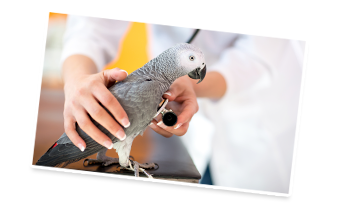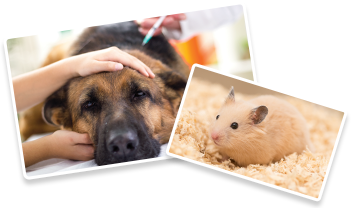-
Sidmouth Parade Clinic
0208 459 3010
-
Neasden Clinic
0208 450 1334
-
Sidmouth Parade Clinic: 0208 459 3010
-
Neasden Clinic: 0208 450 1334
Sidmouth Parade Clinic: 0208 459 3010
Neasden Clinic: 0208 450 1334

Advice and ideas on how to get started with your new arrival
When you first take a puppy home it is best to feed it on the same food it has been used to. A sudden change of diet combined with the stress of adapting to a new home can cause stomach upsets and diarrhoea. If you want to change the diet, do so gradually by mixing it with the puppy’s usual food. Puppies have small stomachs and have to be fed little and often, like babies. It can be very difficult to put together a homemade diet which provides all the nutrients required by growing puppies – it is a great deal easier to feed a good quality commercial puppy food. There are foods which have been specially formulated for puppies because they have different nutritional needs to the fully grown dog. Please contact us to discuss further
Basic Guidelines
The 3 main methods of housetraining
1. 121 training.
To prevent mistakes you will need to watch your puppy constantly! Never leave unsupervised when awake and try not punish mistakes. As soon as he wakes, or exhibits any of the aforementioned behaviours, take him straight outside. Stay with him outside. When he eliminates reward him with an extra special treat (e.g. 3 liver treats) then go for a walk or play time. The action of eliminating is actually self-rewarding so it is the fact that he has eliminated in the right place that you are rewarding. The reward must be immediate to establish the association.If your puppy does have an accident in the house ensure it is cleaned thoroughly. Dogs have much more sensitive noses than we do and use of an enzymatic cleaner will remove any residual traces of the smell; significantly reducing the chance that the puppy will think this is a toilet!This method is only usually successful if you have nothing else to do all day except watch and play with the puppy or if you have a particularly well-adjusted pup. If you have children getting them involved is a great idea, especially if you can set a timer to ensure the pup is taken outregularly.
2. Training Pads.
Confine the pup to a room and cover the floor with training pads or newspaper. Gradually decrease the area covered by the pads until left with just 1. When the pup is reliably eliminating on the pad take a soiled pad to the substrate you eventually want the pup to use e.g. grass or concrete. The smell will soak into the new substrate and act as an odour cue for the pup. Remember to reward the pup every time it uses the new substrate. When he is eliminating reliably in the correct place the pads can be removed. This method involves training the puppy twice. There is also a danger that the smell will impregnate the underlying substrate in the house e.g. lino, carpet, which will act as a future cue for the pup.
3. The Puppy Den.
This method involves organising a confined area (a corner of a room, an old playpen or a collapsible dog kennel). Inside your puppy will need a bed, bowls, toys and a litter tray. Whenever the pup cannot be watched vigilantly he needs to be placed in the den. The best way to ask the pup to go inside is to place his favourite toy or food inside the den with the puppy watching and shut the door with him on the outside. It will be the most desirable place in the world to the pup, so after about 30 secs let him go inside. Always make sure he has a bit of food, or a treat, water, and a toy to play with.
The idea behind the litter tray is to provide an area for the puppy to eliminate in case you are unavailable to let him out every hour. In the litter tray should be placed a sample of the substrate you eventually wish him to use, e.g. concrete or grass. Ideally the pup should be taken outside every hour or when he wakes and stay with him as described before. If he does not eliminate outside it is a good idea to place him back in the den for 30 mins then run him back outside and wait until he goes. This will prevent him from coming in from the garden and peeing on your floor!

Our Pet Health Club is an easy and affordable way to ensure your pet is covered when it comes to preventative health.
The scheme includes everything necessary for the prevention of fleas, worms and other parasites, as well as routine vaccinations.

Ensuring that your animal is fully up to date with their vaccinations is one of the most important things you can do to safeguard their health as a pet owner.
Click here for key information on what, and when, you should be doing.